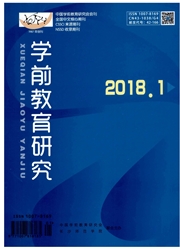

 中文摘要:
中文摘要:
近年来,伴随着“入园难”问题的逐步缓解,民众对学前教育的需求从“能入园”转向“入好园”,学前教育事业发展的重心将逐步从规模发展转向质量提升。幼儿园教育服务质量的提升需要在明确服务质量状态的基础上,洞悉顾客(幼儿家长)对于幼教服务质量属性的感知;需要运用科学、系统的方法确定幼教服务质量属性的优先权,才能进而提出服务质量提升的有效途径和策略。本研究整合Kano模型和SIPA方法,提出了基于Kano—SIPA的幼教服务质量属性探测与服务质量提升决策模型,对于幼儿园管理和幼教行业的发展具有现实意义。该模型不仅基于Kano模型,在考虑顾客心理感知的基础上对服务质量属性进行识别与分类,同时整合运用SIPA方法,既能分析顾客对于各质量属性的重要度感知与幼儿园在各质量属性上的绩效,又能考虑其比较标杆的绩效,从而可以为幼儿园教育服务质量属性提升的优先顺序的确定提供科学依据,并给出有针对性的提升策略,促使幼儿园采取切实有效的措施提升服务质量。
 英文摘要:
英文摘要:
For the past few years, the problem of kids' difficuhness to be admitted by kindergartens has been gradually relieved. Therefore, people's requirement has been transmitted from "being able to be admitted by kindergartens" to "being admitted by kindergartens of high quality". The core of the development of preschool education will turn from scale expanding to quality improvement, which must be based on understanding the quality status of the service as well as clearly knowing customers' perception on the service quality of kindergartens. In view of that, priorities for kindergartens' quality attributes could be determined with the application of scientific and systematic methods, and effective approaches and strategies for quality improvement of kindergartens' service can then be provided. Through integrating the Kano Model and the method of SIPA, the authors thought that the priorities of kindergarten's service quality attributes for improvement could be determined by classifying the quality attributes on account of customers' perception, as well as simultaneously analyzing customers' perception of these attributes' importance, and the kinder- garten and its competitor's performance. The relevant and specific strategies could then accordingly put forward based on the implementation of the Kano-SIPA model. The feasibility and effectiveness of such proposed method was verified by an example in the end.
 同期刊论文项目
同期刊论文项目
 同项目期刊论文
同项目期刊论文
 期刊信息
期刊信息
